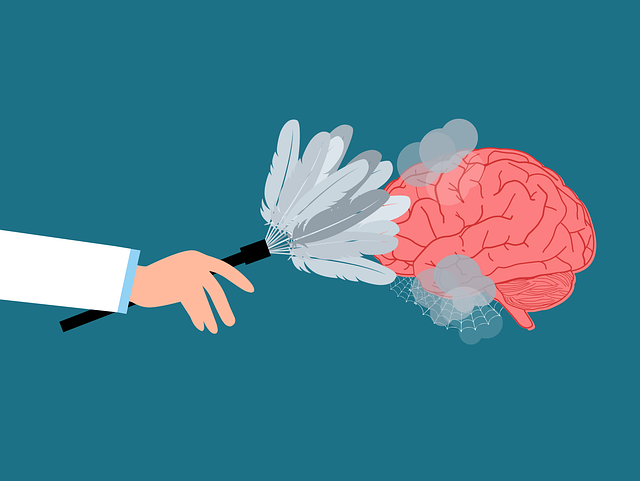Parker Couples Communication Issues Therapy leverages positive thinking, cognitive behavioral techniques (CBT), and structured exercises to foster emotional healing and strengthen relationships. By reframing negative thoughts, expressing gratitude, and practicing active listening, couples improve communication and conflict resolution skills, reducing mental illness stigma. CBT targets distorted beliefs, aiding in trauma support and long-term mental well-being. A consistent routine of guided meditations, affirmations, and reflective writing, integrated into weekly therapy sessions, empowers individuals to navigate communication issues, fostering healthier relationships and community stigma reduction.
Positive thinking exercises are transformative tools for couples navigating communication issues in therapy. This article explores the profound impact of positive psychology on intimate relationships, highlighting its potential to foster deeper connections. We delve into identifying barriers, understanding cognitive behavioral techniques, and designing structured routines tailored to the unique needs of Parker Couples facing communication challenges. Effective strategies for integrating and tracking progress ensure a path to enhanced communication and stronger bonds.
- Understanding Positive Thinking and its Impact on Relationships
- Identifying Communication Barriers in Couples Therapy
- The Role of Cognitive Behavioral Techniques in Overcoming Issues
- Designing a Structured Positive Thinking Exercise Routine
- Integrating and Tracking Progress: Strategies for Parker Couples
Understanding Positive Thinking and its Impact on Relationships

Positive thinking is a powerful tool that can significantly impact relationships, as it involves cultivating optimism and reframing negative thoughts into more positive ones. When individuals, especially couples, engage in this practice, they create an environment conducive to emotional healing processes. By focusing on the good in their relationship and expressing gratitude for each other’s presence, partners can strengthen their bond and improve communication. This shift in perspective encourages empathy building strategies, fostering a deeper understanding and connection between them.
In the context of Parker Couples Communication Issues Therapy, positive thinking exercises play a pivotal role in addressing underlying issues. These exercises help individuals recognize negative thought patterns and replace them with more constructive ones. As a result, couples can enhance their conflict resolution skills, reduce burnout prevention, and create a supportive atmosphere that strengthens their relationship. This approach not only improves personal well-being but also positively influences the dynamic of their partnership.
Identifying Communication Barriers in Couples Therapy

In couples therapy, identifying communication barriers is a pivotal step towards fostering effective dialogue and strengthening relationships. Many couples struggle with unspoken assumptions, defensiveness, and past experiences that hinder open expression. These communication issues often stem from underlying emotional wounds or even the mental illness stigma, where one or both partners might be reluctant to share their true feelings for fear of judgment or rejection. The Parker Couples Communication Issues Therapy model emphasizes recognizing these barriers and creating a safe space for honest interaction.
Understanding the specific challenges each partner faces is crucial. For instance, while one individual may grapple with burnout from high-stress work, the other could be dealing with personal mental health awareness struggles that impact their emotional availability. Therapists skilled in these areas can guide partners through exercises tailored to break down barriers, encouraging active listening, empathy, and constructive conflict resolution strategies. This not only aids in improving relationship dynamics but also contributes to broader mental illness stigma reduction efforts by promoting understanding and support within the couple.
The Role of Cognitive Behavioral Techniques in Overcoming Issues

Cognitive Behavioral Techniques (CBT) play a pivotal role in addressing and overcoming various issues, including Parker Couples Communication Problems often explored in therapy sessions. CBT focuses on identifying and changing negative thought patterns that may be contributing to emotional regulation difficulties. By helping couples recognize and challenge distorted beliefs, this approach facilitates healthier communication dynamics.
In the context of trauma support services, CBT techniques are invaluable for fostering resilience building. It assists individuals in managing intrusive thoughts and emotions associated with traumatic events, enabling them to develop coping strategies for long-term mental well-being. Through these evidence-based methods, couples can navigate their communication issues more effectively, leading to stronger relationships and improved overall happiness.
Designing a Structured Positive Thinking Exercise Routine

Designing a structured positive thinking exercise routine involves intentional planning to address Parker Couples Communication Issues in therapy settings. This process begins by setting specific goals tailored to the organization’s mission, whether it’s improving emotional regulation or fostering coping skills development. A well-designed routine should incorporate various activities that promote active participation and engagement, such as guided meditations, affirmations exercises, and reflective writing prompts.
For optimal results, integrate these practices into a consistent weekly schedule, allowing participants to build upon each session. The routine should be flexible yet structured, accommodating individual needs while ensuring progress over time. By incorporating evidence-based techniques, Stress Management Workshops can effectively empower individuals to navigate Parker Couples Communication Issues and cultivate healthier emotional responses, ultimately enhancing their overall well-being.
Integrating and Tracking Progress: Strategies for Parker Couples

For Parker Couples looking to integrate positive thinking exercises into their lives, a structured approach can significantly help in tracking progress and fostering better communication. Starting with simple daily practices such as joint meditation or gratitude journaling, they can cultivate a more optimistic mindset together. This collective effort not only strengthens their bond but also serves as a foundational strategy for resilience building.
Regular therapy sessions can play a pivotal role in this process by providing a safe space to discuss and address communication issues that may have contributed to past conflicts. Over time, these sessions enable the couple to track their mental growth and identify areas where they’ve successfully reduced the Mental Illness Stigma. By embracing open dialogue and adopting stress management techniques learned during therapy, Parker Couples can make substantial strides in enhancing their relationship while contributing to important stigma reduction efforts within their community.
Positive thinking exercises, tailored through cognitive behavioral techniques, offer a powerful tool for Parker Couples facing communication issues in therapy. By structuring routines and tracking progress, these practices can foster healthier relationships and enhance overall well-being. Embracing this approach allows couples to navigate their challenges with renewed perspective and stronger bonds, ultimately revolutionizing their therapeutic journey.














